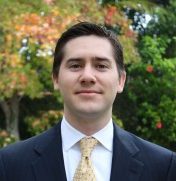
Taking a Closer Look at Some Major Practice Areas
November 16, 2016
Are you confused as to what area of law you want to practice? If so, then you are not alone. When I was a student, I constantly daydreamed about what it would be like when I was a lawyer. One moment I would envision myself as a big city defense lawyer, the next I could easily see myself doing small town family law or estate planning. I had no idea what area of law interested me.
It wasn’t until I started questioning lawyers that I began to eliminate specific areas of law from my future plans. The great thing about talking with practicing lawyers is that they love to discuss the good and bad parts of their jobs. This is extremely helpful for law students who haven’t yet zeroed in on an area of practice and don’t have any work experience.
This article attempts to answer some of those questions for you. Below is a list of eight major practice areas that you may see when you begin to seek post-graduation employment. Should you apply? To help answer that question, I’ve reached out to some good friends and asked them for an honest look at the good and bad.
So here we go!
Construction Defect
Construction defect lawyers help property owners and developers in lawsuits. For example, if you bought a home in a development and many of the homes have unstable foundations, chances are there will be a lawsuit against the property developer and/or subcontractors to recover monetary damages. Plaintiff lawyers represent the homeowners and defense lawyers represent the developers/contractors who are typically insured by large insurance companies.
My good friend Daniel Kalinowski (’15) is a Chapman law graduate and spends a lot of his time helping homeowners and property owners. So, I asked him what the best and worst parts of practicing in this area are.
Best part: “It is satisfying helping local families who have poured their entire savings into buying a home and discovered substantial defects as a result of faulty construction.”
Hardest part: “The worst part of practicing construction defect law is that it is document-intensive, and can be very complex at times. Lawsuits can involve hundreds of parties. Sometimes when the judge calls you up for an appearance, 15 lawyers will stand up and want to discuss the case. That can be frustrating.”
Employment Law
Employment law is a huge body of law. Most lawyers who practice labor and employment are litigators. Most defense lawyers defend companies in employment lawsuits but they also provide legal advice to companies and human resource departments. Plaintiff’s lawyers almost exclusively represent employees who claim to have been wrongfully terminated, harassed, blew the whistle, or didn’t receive proper compensation.
I’m a plaintiff’s employment attorney. I exclusively represent individual workers in wrongful termination matters.
Best part: “In my opinion the absolute best part of the job is helping my clients walk through an awful part of their life. When my clients call me, they are absolutely distraught. They just got fired and feel like the law was broken. For many of these people, their job was their life, and the wrongful termination has violated their soul. When the case is resolved, most of my clients are extremely grateful that I was there.”
Hardest part: “When opposing lawyers ignore the rules of civil procedure. I absolutely detest when an opposing lawyer files a frivolous motion or serves absurd discovery requests simply to waste my time. Employment law is discovery heavy, so when an opposing lawyer decides to make your life miserable, they can do it even though it’s a total waste of everyone’s time.”
Estate Planning
Estate planning is all about helping people plan for the future. What happens to your assets when you die? What if you’re in a coma? What about your kids and their education? Practicing estate planning is all about helping people decide what to do when certain things happen. It is generally more transactional in nature unless you get into estate litigation.
Chapman graduate Aaron Waites (’12) has established a thriving estate planning practice.
Best part: “The relationship you get to build with your clients.” Unlike most areas of law where clients hire an attorney for specific matters (e.g. breach of contract, bankruptcy), “your clients hire you to build, implement, and continually adjust their plan to accomplish their ever-changing goals. You are the clients’ legal concierge and they will rely on you to direct them in all aspects of their legal, tax, and financial planning.”
Hardest part: “The worst part of estate planning can also be one of the best parts — seeing your client’s plan carried out. When your client’s plan is carried out successfully, it is very rewarding. However, in this increasingly litigious area of law, it is becoming less common for a plan to be carried out without a contest or question. The purpose of creating the plan is to minimize the exposure of the plan to contest. Unfortunately, there is an inherent incentive for beneficiaries to challenge plans. Defending challenges are costly to the rightful beneficiaries, and the courts are reluctant to enforce provisions that are intended to discourage challenges.”
Family Law
If you practice in family law you help clients file for divorce, fight for child custody, seek restraining orders, try to establish paternity, and divide assets. It’s a difficult job. Family law has a different court system with no right to a jury trial. You are dealing with extraordinarily emotional clients that need a lot of hand holding and difficult discussions.
Jonathan Mason (’12) is a Chapman graduate in Irvine exclusively practicing family law, and he loves his job.
Best part: “Family law is a great area of practice for an attorney who likes to be in court on a regular basis helping real people with extremely emotional and challenging problems. Family law is deceptively complex in that it touches on numerous areas of the law, particularly in complicated divorce proceedings involving myriad properties, businesses, and other assets and debts.”
Hardest part: “When one or both parties (or their attorneys) let their emotions get the better of them, especially where children are involved, taking a ‘scorched earth’ approach to litigating the case. In that situation, everyone loses.”
Immigration Law
Immigration law is all about helping people who want to come to the United States, either temporarily or permanently. It is not adversarial like litigation, in that you are not “up against” an opponent. But you are trying to collect the necessary facts to meet the legal standard for each type of visa. Every application is approved or denied by the U.S. Citizenship and Immigration Services. The law is mostly federal law, so you’re not dealing with much state variation unlike other areas of law.
According to Mitra Nejat, a longtime OC immigration lawyer and mother of a Chapman law graduate, there are great benefits to being an immigration lawyer.
Best part: You get to “assist immigrants in obtaining legal status so that they can pursue their American dream and/or unite with their family in U.S.”
Hardest part: “The worst part of immigration is no matter how much you want to help a client there may be no immigration option available to help the person. In those situations, you have to break the bad news to someone who just wants a better life. That is hard.”
Insurance Litigation
Insurance litigation is an umbrella term for a lot of different areas. The practice area coalesces and revolves around litigation involving insurance money. One day you may be handling health care, the next employment, and the next a breach of contract.
According to Chapman graduate Kevin Grochow (’12) it has its advantages and disadvantages.
Best part: “The best part, particularly at a larger full-service insurance defense firm, is certainly the varied range of practice areas available within insurance litigation, and the ability to get a lot of litigation experience in those practice areas at a fairly rapid pace.”
Hardest part: “The worst part probably only applies to those who want to specialize in just one area of law. It may be difficult in insurance defense to develop an early specialization in any particular area, unless the firm has a practice group that specializes in what you want to do.”
Personal Injury
Personal injury is an extremely popular area of law. Lawyers either represent injury victims and are suing to maximize the monetary recovery for their clients, or they represent insurance companies trying to minimize the monetary payout. Sometimes these can be extremely heart-wrenching cases. For example, when a child is killed or severely injured and the facts do not clearly establish who is at fault or who is legally liable, the heartache for both sides is tremendous.
Ian Silverthorne (’12) is a personal injury lawyer and Chapman graduate. He exclusively represents injury victims.
Best part: “The best part about practicing personal injury is standing up for these individuals and protecting them from the overwhelming resources of defendants and their insurance companies.”
Hardest part: “The worst part is dealing with the different motivations of defense attorneys and insurance adjusters. For my clients, the case is about recovery and being made whole. For the insurance adjusters, it’s about limiting recovery in any way possible. This can be through needless delay or extensive discovery that is only intended to add expense to the litigation. I often have to deal with motivations from the other side unrelated to the value of the claim.”
Workers’ Compensation
Workers’ compensation is all about workplace injuries. For example, if an employee falls off a ladder at work and breaks a leg resulting in a permanent disability, he or she will be unable to work and will have medical bills that quickly stack up. Because of the way the law is set up, the employee can’t file a personal injury case and the only recourse will be to file a workers’ compensation claim. Like family law, workers’ compensation lawyers operate in a different court system. Again, there is no jury.
According to Rich Wu (’12), another Chapman law graduate, this system has pros and cons.
Best part: “Compared to civil litigation, there are not as many hard deadlines. Discovery is a lot simpler. In general, your typical workers’ compensation case is more streamlined. Overall, workers’ compensation is a lot less stressful, which I feel leads to better work/life balance. Often attorneys must choose whether they want to be career-oriented or family-oriented. Most workers’ compensation firms provide a lot of flexibility. Most importantly, the pay for a workers’ compensation defense attorney is great. A lot of people would be surprised by the salaries of defense attorneys after just one or two years of experience.”
Hardest part: “A lot of people become an attorney because they like the prestige. Workers’ compensation is not a prestigious area of law. Furthermore, in the legal field, a lot of attorneys frown upon workers’ compensation because they view it as low-level law. If you are not in it for the prestige, then this will not be a problem for you.”
Conclusion
Although we have only covered eight practice areas, many available jobs following graduation will fall into one of the categories mentioned. It’s better to investigate them now and decide what you may be interested in down the road.
 Branigan Robertson (’12) is an employment attorney in Irvine, California. Mr. Robertson is a graduate of the law school at Chapman University and member of the California Employment Lawyers Association. He exclusively represents California employees in lawsuits against corporations and focuses his practice on whistleblower and wrongful termination cases. You can visit his firm’s website for more information.
Branigan Robertson (’12) is an employment attorney in Irvine, California. Mr. Robertson is a graduate of the law school at Chapman University and member of the California Employment Lawyers Association. He exclusively represents California employees in lawsuits against corporations and focuses his practice on whistleblower and wrongful termination cases. You can visit his firm’s website for more information.

